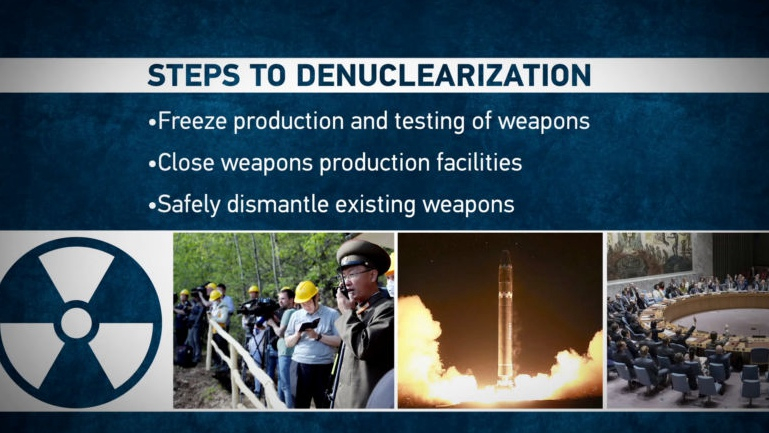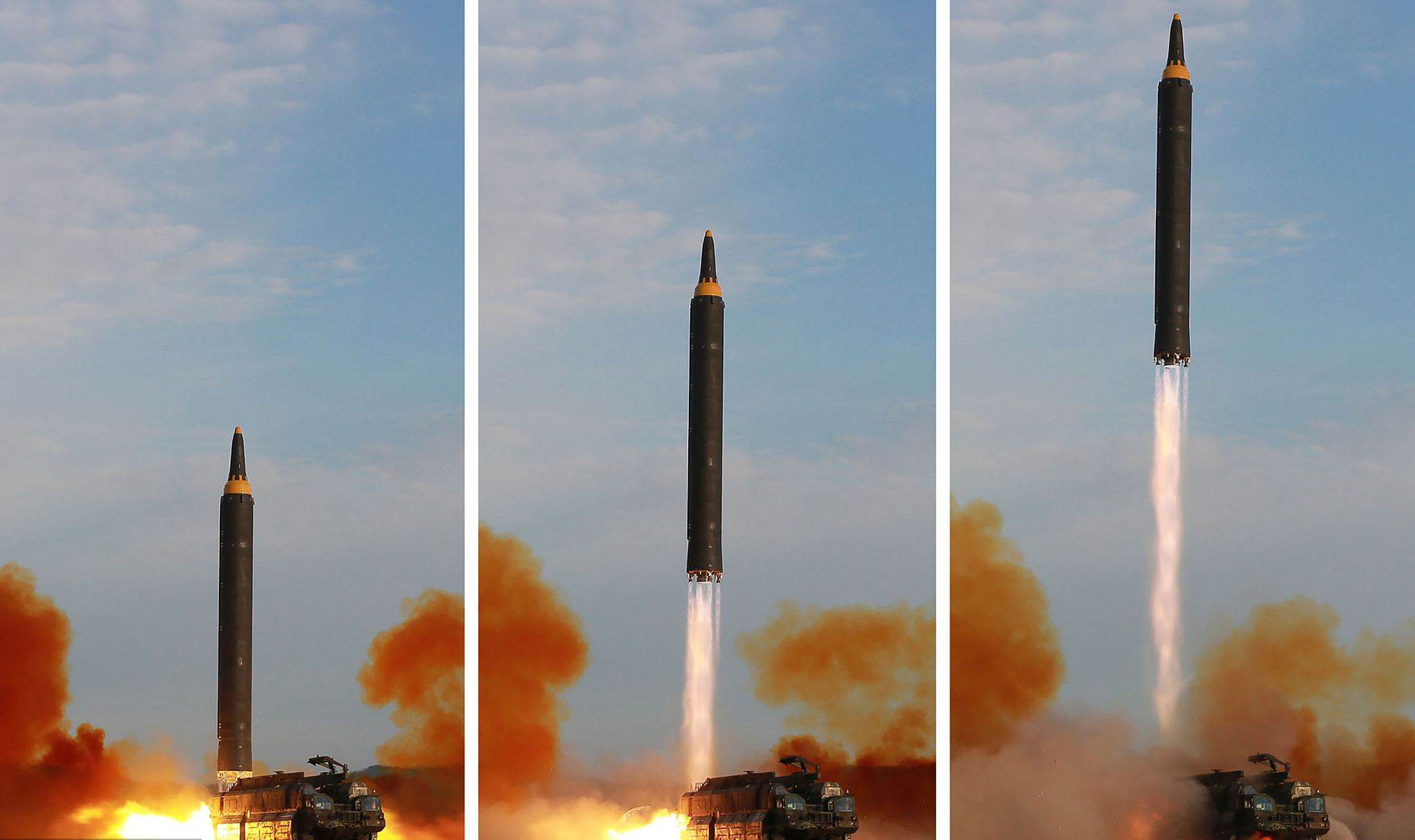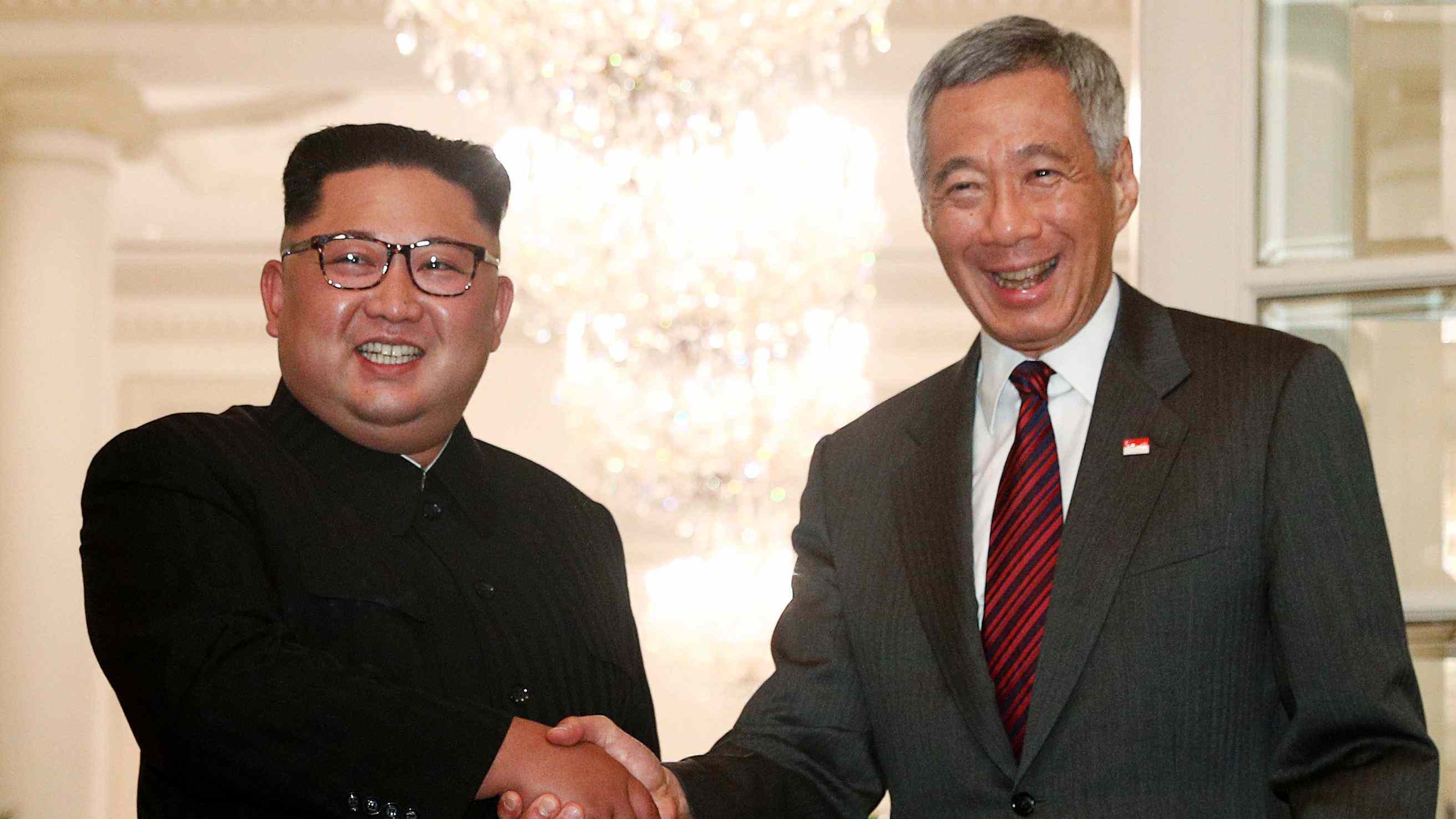
Politics
10:29, 11-Jun-2018
A look at the complex path to Korean Peninsula denuclearization
By Jim Spellman
02:54

Denuclearization of the Korean Peninsula will be extremely complicated – technically and politically.
Experts say there are three basic steps to denuclearization.
First, the production of new weapons and fissile material, like enriched uranium and plutonium, must stop. Next, nuclear facilities must be closed and rendered inoperable, and finally, the existing weapons stockpiles must be safely dismantled.

This undated combination picture released from DPRK's official Korean Central News Agency (KCNA) on Sept.16, 2017, shows a launching drill of the medium-to-long range strategic ballistic rocket Hwasong-12 at an undisclosed location. /VCG Photo
This undated combination picture released from DPRK's official Korean Central News Agency (KCNA) on Sept.16, 2017, shows a launching drill of the medium-to-long range strategic ballistic rocket Hwasong-12 at an undisclosed location. /VCG Photo
There are signs the DPRK has already begun the first two steps: halting testing in April and at least partially destroying a test site in May.
Dismantling the existing arsenal would likely mean transporting the weapons to secure locations in a country with advanced nuclear expertise like Russia or the United States. A robust verification system will be key to any agreement. The International Atomic Energy Agency says it is ready to take on monitoring duties.
Beyond the technical aspects, there are considerable political challenges to denuclearization. In exchange for giving up its weapons, the DPRK will receive concessions from the US – including sanctions relief and security assurances. Timing will be key to any denuclearization effort.
01:42

“When the US talks about denuclearization, they want it to be short and easy. But for the DPRK side, when they talk about denuclearization, it’s not just them coming and bringing their nukes and putting them on the table and saying what can we get for this, but an action for action process. It’s one where they need to see normalized relations over time,” Jenny Town, managing editor of 38 North, said.
A denuclearization effort of this scale has never been attempted before. In the early 1990s, South Africa dismantled its arsenal of six nuclear weapons and one partially completed weapon. But the DPRK is thought to have between 30 and 60 completed weapons. Even if all sides agree to do this as quickly as possible, the effort will likely take years.

SITEMAP
Copyright © 2018 CGTN. Beijing ICP prepared NO.16065310-3
Copyright © 2018 CGTN. Beijing ICP prepared NO.16065310-3